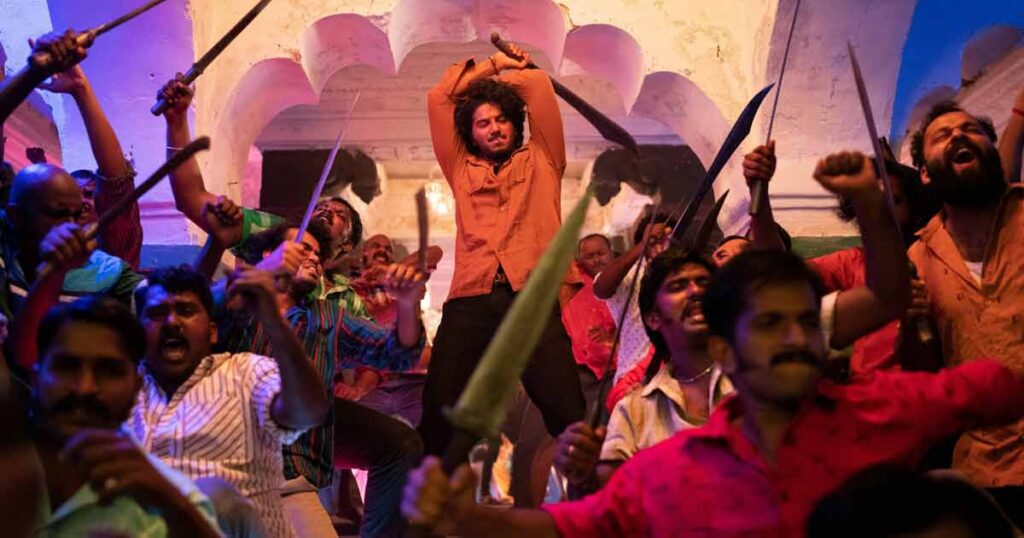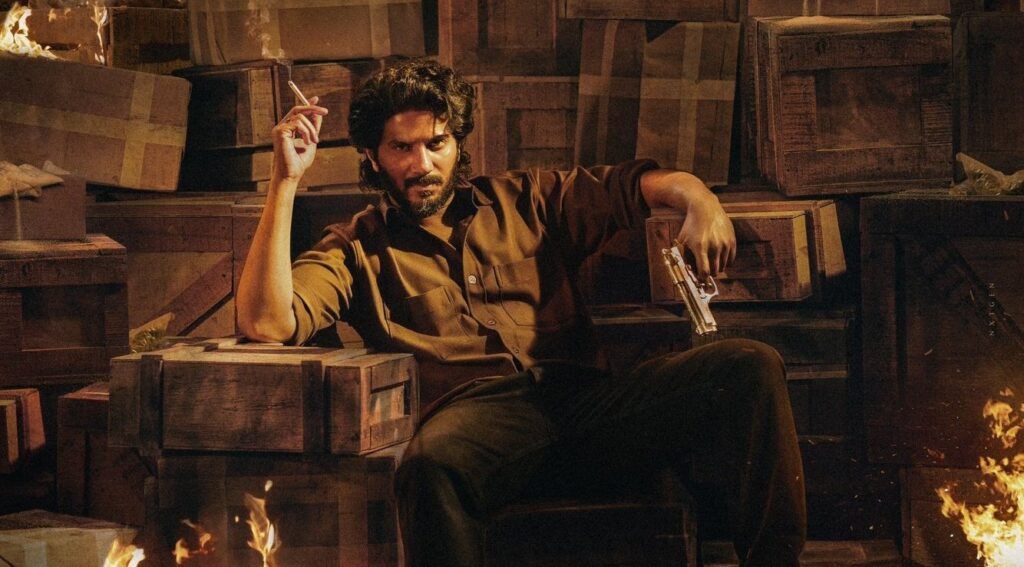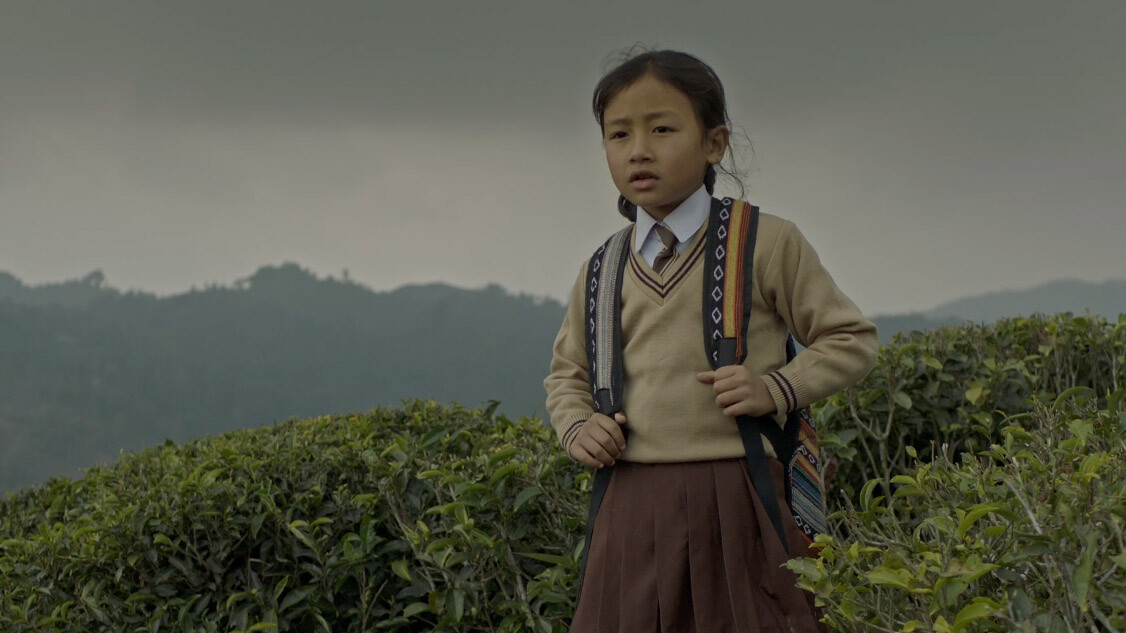One of the thumb rules of an enthralling crime drama is the wise employment of character development through various plot points to establish the milieu. Debutant director Abhilash Joshiy and his writer, Abhilash N. Chandran, have successfully created a world that features a large cast of characters who understand and respect the power dynamics between them. But as the story of the film advances, the focus on style rather than substance detracts from the overall impact and depth of the narrative, making the film appear marginally stylish and generic in terms of its subject matter.
The story of the film unfolds in the fictional town of Kotha, which has always been dominated by criminals. Kannan Bhai (Shabeer Kallarakkal), a dreaded and brutal drug lord, is the current goon of the town. CI Shahul Hassan (Prasanna) is aware of the town’s descent into lawlessness, but it wasn’t until he arrived that he realized the awful reality. When Shahul is humiliated by Kannan, he understands that the don is someone to be reckoned with. SI Tony Titus (Gokul Suresh) tells Shahul about Raju (Dulquer Salmaan), who once ruled the town and was the leader of a gang of which Kannan was also a member. They were the best of friends, but due to unavoidable circumstances, they became rivals. Ten years ago, Raju left the town for good. Shahul devises a plan and decides to bring the former king of Kotha back to the town, using him as a device to terminate the mayhem created by Kannan. As Raju returns, old wounds are reopened, forcing him to confront his past and the demons that haunted him for a decade to not only save the town but also find redemption for himself.

King of Kotha has a running time of around 2 hours and forty-five minutes, and yet it did not have the time to infuse the depth and complexity needed to truly engage the audience. While the characters may be well-defined, their interactions and development feel superficial. The generic storyline fails to offer any fresh or innovative elements that would set it apart from other gangster movies. The past of Manju, the relationship between Kannan and Raju, and other factors had the potential to turn this dark tale of crime into a memorable character-centric film. To illustrate the relationships between the multiple characters of the film required a certain level of sophistication with subtleties, which is missing in the film.
Conventional tropes of gangster drama—loyalty, betrayal, and revenge—play a key role in the narrative, creating tension. The whistle-provoking sequences are abundant in the film and serve more as thrilling moments for the audience than important plot points or character development, organically moving the plot along. This dampens the forward motion, particularly in the second half following Raju’s comeback. The lack of a riveting reason for Raju’s departure from Kotha undermines the overall logicality of the story. So, his return to the dreaded town feels forced and fails to engage the audience on an emotional level. Consequently, the screenplay fails to deliver the captivating narrative it promises.
The story and storytelling are merely a pretext for Dulquer to perform, as Joshiy intends to turn the film into a star vehicle. The initial title card, which dedicates the movie to the superstar, makes this clear. The swagger, the attitude, and the snappy banter are all present. As the narrative progresses, Raju’s fearlessness becomes increasingly crucial in navigating the challenges that arise. Dulquer’s commanding presence not only complements Raju’s character but also serves as a reason for him to overcome his obstacles. The lack of natural flow in the dialogue further hinders the improvement of the situation. It becomes evident that the forced dialogue not only fails to enhance the story but also detracts from Raju’s character development. The problem still exists in the second half of the film, as the writing weakens and adds little new to the standard gangster movie template. Later on, in an unexpected scene, former friends and competitors Raju and Kannan rekindle their friendship. This heartwarming reconnection serves as a brief respite from the monotonous gangster movie formula, showcasing the potential for deeper character development. However, this touching moment is not enough to salvage the overall weakness of the script, leaving viewers craving more originality and innovation.

The cinematography by Nimish Ravi is extremely stylized. Whether it is the slow motion shots to emphasize the presence of Raju in the action scenes or the movement of the camera during the action scenes, the camera puts us in the exact mood for the scene we are watching. The editing of the film by Shyam Sasidharan is sharp and keeps the dramatic pace of the film intact. The final fifteen minutes of the film are intense and keep us on the edge of our seats. But, due to the lack of a coherent screenplay, it fails to create an overall rhythm for the film. The production design by Nimesh Thanur and costumes by Praveen Varma are detailed, providing a period touch and stamp of authenticity. The background music by Jakes Bejoy creates a heightened sense of hyperrealism and gels with the action scenes for an adrenaline rush.
Dulquer brilliantly proves that he is perfectly capable of mastering such devastating personalities by standing out in an impressive role. His effortless transitions between the protagonist’s charm and ruthlessness captivate the audience and leave them in awe of his versatility as an actor. Shabeer receives a substantial role in addition to Dulquer, which he plays brilliantly. He gets to display an array of Kannan’s traits, including intimidating, cowardly, affectionate, and explosive. Aishwarya Lekshmi and Nyla Usha both excel in their respective parts. Kotha Ravi, Raju’s father, played by Shammi Thilakan, deserves special note since you can feel the father’s angst in every scene he is in as he effectively conveys the character’s inner turmoil and heartache. From Aishwarya Lekshmi to Nyla Usha’s portrayal of a strong-willed woman, the ensemble cast truly shines. Other supporting characters, including Chemban Vinod Jose and Gokul Suresh also deliver befitting performances.
Due to the lack of an engrossing storyline, King of Kotha miserably fails to dazzle and engage audiences. It ultimately fails to reach its ambitious goals and live up to its soaring aspirations. But for die-hard fans of Dulquer, this Onam release could still be worth a watch.



